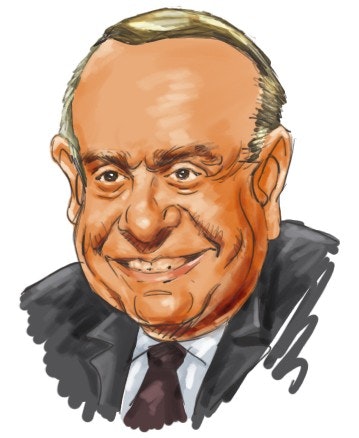According to a Form 4 filed with the SEC, Ernest Mario, who is a member of the Board of Directors at Boston Scientific Corporation (NYSE:BSX) directly acquired 30,000 shares of the company’s stock on May 6th at an average price of $7.76 per share. This gives him about 510,000 shares held directly. We track insider purchases because economic theory suggests that insiders should generally avoid buying stock, instead preferring to diversify their wealth, unless their expected return on the stock is high enough to offset the benefits of diversification. Studies show that stocks bought by insiders exhibit a small outperformance effect (read our analysis of studies on insider trading).
Boston Scientific Corporation (NYSE:BSX) is a medical device company perhaps best known for its cardiac health devices. After a 37% rise in the stock price year to date, the stock has a market capitalization of $11 billion. In the first quarter of 2013, Boston Scientific Corporation (NYSE:BSX) experienced a 6% decline in revenue versus a year earlier. If we add back a number of special items from both the quarter and Q1 2012 (for example, the company took a goodwill impairment of over $400 million last quarter) we get that management was able to hold net operating margins in line.
These special items have left Boston Scientific Corporation (NYSE:BSX) unprofitable on a trailing basis, but adjusted earnings numbers haven’t been too terrible; Wall Street analysts are expecting essentially no change for 2013, resulting in a current-year P/E multiple of 20. That’s certainly not value territory, but the sell-side does then expect some gains in EPS beyond that point. We’d be a bit skeptical, however, given that top line numbers have been down.
We follow quarterly 13F filings from hedge funds and other notable investors as part of our work developing investment strategies (we have found, for example, that the most popular small cap stocks among hedge funds generate an average excess return of 18 percentage points per year) and can also use our database to find investment managers who had large positions in Boston Scientific Corporation (NYSE:BSX) at the beginning of this year. Billionaire Leon Cooperman’s Omega Advisors disclosed ownership of about 15 million shares at the end of December (find Cooperman’s favorite stocks). Diamond Hill Capital, managed by Ric Dillon, sold 1% of its shares but still had almost 18 million shares in its portfolio according to its 13F (see more stocks Diamond Hill owns).
Other medical device companies include Medtronic, Inc. (NYSE:MDT), St. Jude Medical, Inc. (NYSE:STJ), Edwards Lifesciences (NYSE:EW), and Baxter International Inc. (NYSE:BAX). Edwards trades at a premium to the rest of these peers, at 21 times its trailing earnings, making it about even with Boston Scientific Corporation (NYSE:BSX) on that basis. Edwards did manage to grow its revenue by 8% last quarter compared to the first quarter of 2012, but we aren’t sure that a high enough growth rate to justify its current valuation. Medtronic, the largest of these companies by market cap at $50 billion, is priced at something of a discount with earnings multiples in the low teens. Growth has been low, but the company is at least somewhat close to value territory. St. Jude and Baxter both feature trailing P/E multiples of 17, with neither business showing much change in their financials in their most recent quarter compared to the same period in the previous year.
This insider purchase is interesting, but we wouldn’t recommend buying Boston Scientific at this time. The stock is overvalued relative to its current performance, and while we certainly wouldn’t rule out dramatic improvements at the company over the next couple of years expectations for 2013 are not particularly strong and we’d noted when looking at the Q1 results that there wasn’t any growth at all. Boston Scientific’s peers also generally look to be priced at about the right levels with little sign that the industry as a whole is poised for rapid growth.
Disclosure: I own no shares of any stocks mentioned in this article.




